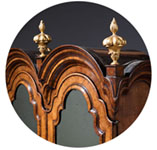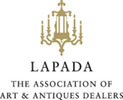19th Century Eight Day Gilt Brass Carriage Clock with Alarm by Orange, Paris
Sold
Request Information
Follow Us
19th Century Eight Day Gilt Brass Carriage Clock with Alarm by Orange, Paris
A most unusual engraved gilt-brass French carriage clock by A. Orange, c. 1860.
Case
The attractive beautifully engraved gilt-brass clock of unusual shape has four shaped pillars on the corners and is surmounted by four torch finials and a shaped carrying handle. It has bevelled glass windows on three sides and the top so that the movement is almost entirely visible. The gilt brass platform escapement can be seen through a rectangular window in the top. The clock is surmounted by a typically shaped. At the back is an engraved door giving access to the winding arbors
Movement
The high-quality spring-driven eight-day movement is constructed between plates. It consists of going and striking trains, as well as alarm. The going train has an English lever escapement with hairspring balance and regulation, all mounted on a gilt-brass platform. It can be adjusted by a regulator pin which can be seen through the window in the top and is accessible through the backdoor. The striking indicates the hour fully and the half hours with a single stroke on a bell. In addition, there is a repeat button on the front, with which the hour last struck can be repeated at will. The backplate is stamped A ORANGE A PARIS in a small line cartouche.
Dial
The white enamel dial has a Roman chapter ring with five-minute and minute divisions. The time is indicated by a pair of finely cut blued-steel trefoil hands. The dial is signed in very small capital letters as follows:
A. ORANGE A PARIS
Below is a subsidiary Arabic alarm dial with a small blued-steel hand, which can be set at the back.
The maker
Not much is known about this maker, which is surprising given the exceptional execution of this clock.
Condition
Good. Wear consistent with age and use. Fabulous original condition.
Dimensions
Height: 6.11 in. (15.5 cm)
Width: 4.34 in. (11 cm)
Depth: 3.75 in. (9.5 cm)
Literature
Tardy, Dictionnaire des Horlogers Français, Paris, 1971, p.494.
PREVIOUSLY SOLD
No Results Found
The page you requested could not be found. Try refining your search, or use the navigation above to locate the post.
No Results Found
The page you requested could not be found. Try refining your search, or use the navigation above to locate the post.
YOU MAY ALSO LIKE
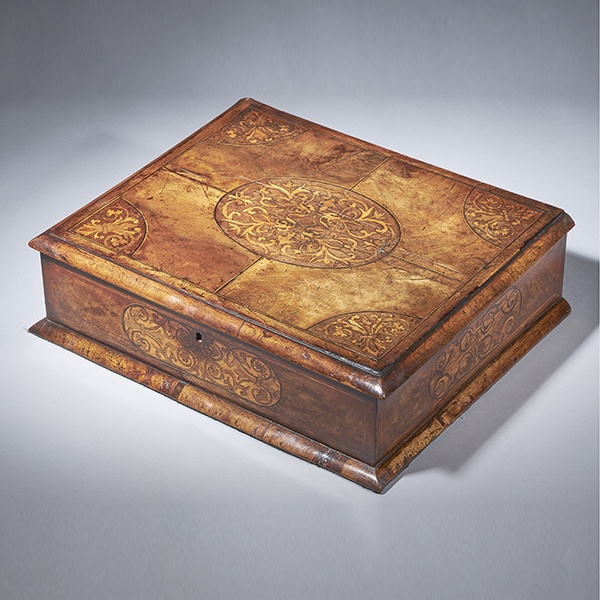
17th Century Figured Walnut and Seaweed Marquetry Lace Box
17th Century Figured Walnut and Seaweed Marquetry Lace Box £3,600 Follow Us17th Century Figured Walnut and Seaweed Marquetry Lace Box A fine and extremely rare figured walnut and seaweed marquetry 'lace box', circa.... let’s break it down -...
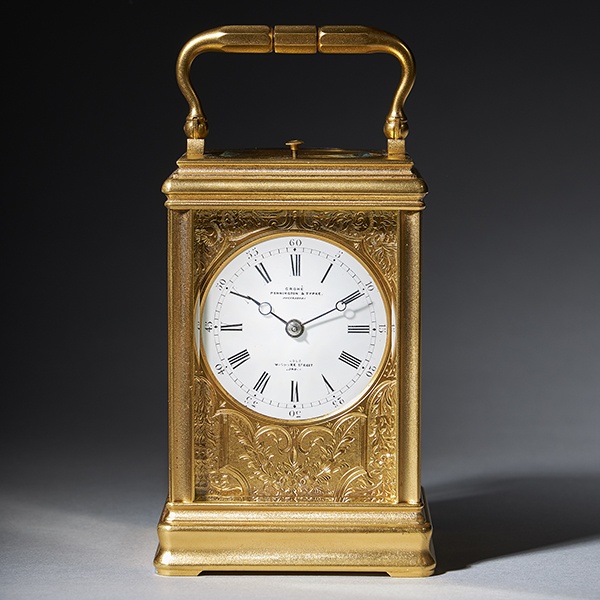
19th Century Repeating Gilt-Brass Carriage Clock by the Famous Drocourt
19th Century Repeating Gilt-Brass Carriage Clock by the Famous Drocourt £5,600 Follow Us19th Century Repeating Gilt-Brass Carriage Clock by the Famous Drocourt A superb repeating carriage clock with a gilt-brass gorge case by the famous maker...
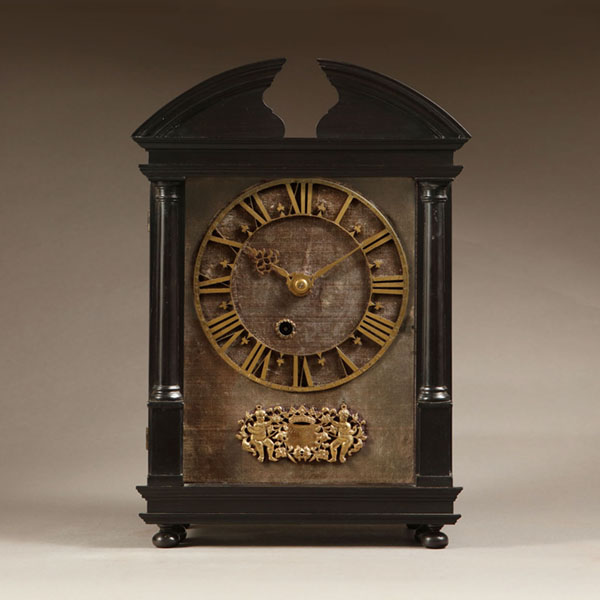
17th-Century Hague Clock Signed by Pieter Visbagh, circa 1675
Small 17th Century Hague clock made c. 1675 by Pieter Visbagh, who was apprenticed by Salomon Coster. The latter made the first pendulum clock according to the instructions of Christiaan Huygens, the internationally renowned scientist who developed the idea of applying a pendulum to a clock movement.
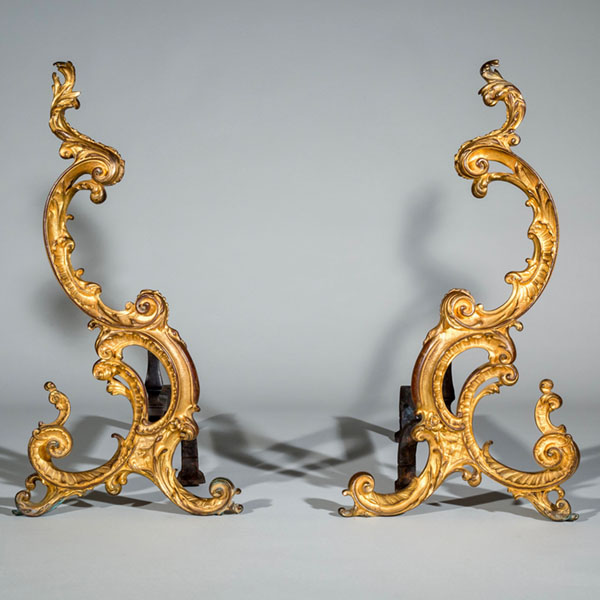
Pair of 18th-Century English Rococo Gilt Bronze Andirons or Firedogs
An exceptional pair of 18th century English Rococo gilt bronze andirons or fire dogs.
The bold shape of these andirons relate to designs of Thomas Johnson (1714–1778), one of London’s pioneers of the ‘Modern’ or French style, later known as Rococo.
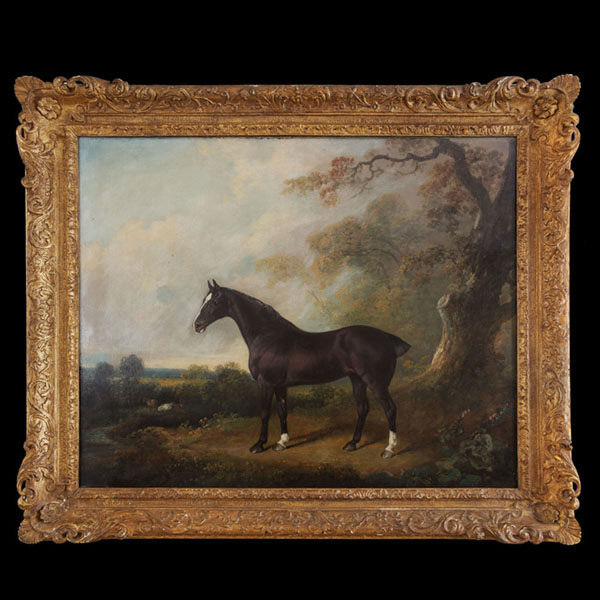
Oil Painting of a Horse Standing Proud in Woodland
Fine Art – Charles Henry Scwanfelder (1774-1837). Signed C H Schwanfelder Pinx and dated 1825. An exceptional portrait of a horse standing proud in woodland, in front of a tree-lined vista incorporating cows residing by a stream.
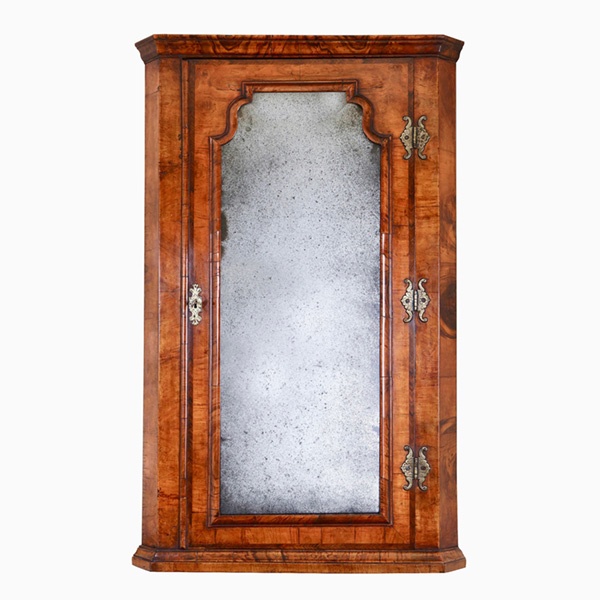
Queen Anne Walnut Corner Cupboard with Bevelled Mirror Plate
A truly remarkable find in original condition. To the door a shaped soft bevelled mirror plate is framed by a cross-grain molding of typical queen Anne design which is further cross-banded, feather-banded and edged to the opening with a single de-molding.

17th Century Figured Walnut and Seaweed Marquetry Lace Box
17th Century Figured Walnut and Seaweed Marquetry Lace Box £3,600 Follow Us17th Century Figured Walnut and Seaweed Marquetry Lace Box A fine and extremely rare figured walnut and seaweed marquetry 'lace box', circa.... let’s break it down -...

19th Century Repeating Gilt-Brass Carriage Clock by the Famous Drocourt
19th Century Repeating Gilt-Brass Carriage Clock by the Famous Drocourt £5,600 Follow Us19th Century Repeating Gilt-Brass Carriage Clock by the Famous Drocourt A superb repeating carriage clock with a gilt-brass gorge case by the famous maker...

17th-Century Hague Clock Signed by Pieter Visbagh, circa 1675
Small 17th Century Hague clock made c. 1675 by Pieter Visbagh, who was apprenticed by Salomon Coster. The latter made the first pendulum clock according to the instructions of Christiaan Huygens, the internationally renowned scientist who developed the idea of applying a pendulum to a clock movement.

Pair of 18th-Century English Rococo Gilt Bronze Andirons or Firedogs
An exceptional pair of 18th century English Rococo gilt bronze andirons or fire dogs.
The bold shape of these andirons relate to designs of Thomas Johnson (1714–1778), one of London’s pioneers of the ‘Modern’ or French style, later known as Rococo.

Oil Painting of a Horse Standing Proud in Woodland
Fine Art – Charles Henry Scwanfelder (1774-1837). Signed C H Schwanfelder Pinx and dated 1825. An exceptional portrait of a horse standing proud in woodland, in front of a tree-lined vista incorporating cows residing by a stream.

Queen Anne Walnut Corner Cupboard with Bevelled Mirror Plate
A truly remarkable find in original condition. To the door a shaped soft bevelled mirror plate is framed by a cross-grain molding of typical queen Anne design which is further cross-banded, feather-banded and edged to the opening with a single de-molding.
